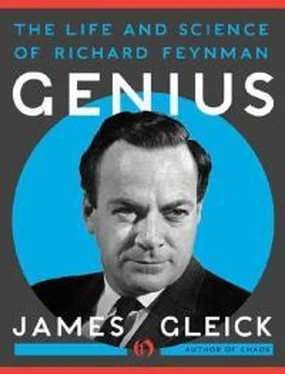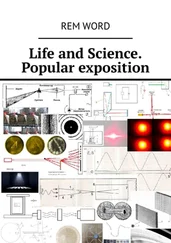Klauder, John R., ed. 1972. Magic Without Magic: John Archibald Wheeler . San Francisco: W. H.
Freeman.
Kragh, Helge. 1989. Dirac: A Scientific Biography .
Cambridge: Cambridge University Press.
Krol , Norman M., and Lamb, Wil is E. 1949. “On the Self-Energy of a Bound Electron.” Physical Review 75:388.
Kuhn, T. S. 1962. The Structure of Scientific Revolutions .
Chicago: University of Chicago Press.
——. 1977. The Essential Tension . Chicago: University of Chicago Press.
——.
1978. Black Body Theory and the Quantum Discontinuity, 1894–1912 . Oxford: Clarendon Press.
Kunetka, James W. 1979. City of Fire . Albuquerque: University of New Mexico Press.
Kursunoglu, Behram N., and Wigner, Eugene P. 1987.
Reminiscences about a Great Physicist: Paul Adrien Maurice Dirac . Cambridge: Cambridge University Press.
La Bel e, Jenijoy. 1989. “The Piper and the Physicist.”
Engineering and Science, Fal , 25.
LaFol ette, Marcel C. 1990. Making Science Our Own: Public Images of Science 1910–1955. Chicago: University of Chicago Press.
Lamb, Wil is. 1980. “The Fine Structure of Hydrogen.” In Brown and Hoddeson 1983, 311.
Landsberg, P. T., ed. 1982. The Enigma of Time . Bristol: Adam Hilger.
Laurence, Wil iam L. 1959. Men and Atoms . New York: Simon and Schuster.
Leighton, Ralph. 1991. Tuva or Bust! Richard Feynman’s Last Journey . New York: Norton.
Lentricchia, Frank. 1980. After the New Criticism . Chicago: University of Chicago.
Leplin, J., ed. 1984. Scientific Realism . Berkeley: University of California Press.
Lewis, Gilbert N. 1930. “The Symmetry of Time in Physics.”
In Landsberg 1982, 37.
Lifshitz, Eugene M. 1958. “Superfluidity.” Scientific American , June, 30.
Lindsay, Robert Bruce. 1940. General Physics for Students of Science . New York: Wiley and Sons.
Lipset, Seymour Martin, and Ladd, Jr., Everett Carl . 1971.
“Jewish Academics in the United States.”
American Jewish Yearbook , 89.
Lombroso, Cesare. 1891. The Man of Genius . London: Walter Scott.
Lopes, J. Leite. 1988. “Richard Feynman in Brazil: Recol ections.” Manuscript.
Lopes, J. Leite, and Feynman, Richard. 1952. “On the Pseudoscalar Meson Theory of the Deuteron.”
Symposium on New Research Techniques in Physics , 251.
Macfarlane, Gwyn. 1984. Alexander Fleming: The Man and the Myth . London: Hogarth Press.
Mach, Ernst. 1960. The Science of Mechanics: A Critical
and Historical Account of Its Development .
Translated by Thomas J. McCormack. Lasal e, Il .: Open Court.
Maddox, John. 1988. “The Death of Richard Feynman.”
Nature 331:653.
Mann, Thomas. 1927. The Magic Mountain . Translated by H. T. Lowe-Porter. New York: Modern Library.
Marshak, Robert E. 1970. “The Rochester Conferences.”
Bulletin of the Atomic Scientists , June.
Masters, Dexter, and Way, Katharine, eds. 1946. One World or None: A Report to the Public on the Full Meaning of the Atomic Bomb . New York: McGraw-Hil .
Maugham, W. Somerset. 1947. “Sanatorium.” In Creatures of Circumstance . London: Heinemann.
Mead, Margaret. 1949. Male and Female: A Study of the Sexes in a Changing World . New York: Morrow.
Medawar, Peter Brian. 1969. Induction and Intuition in Scientific
Thought .
Philadelphia:
American
Philosophical Society.
Mehra, Jagdish, ed. 1973. The Physicist’s Conception of Nature . Dordrecht: Reidel.
Mehra, Jagdish. 1988. “My Last Encounter with Richard Feynman.” Talk at Department of Physics, Cornel University, 24 February.
Melsen, Andrew G. van. 1952. From Atomos to Atom: The History of the Concept “Atom.” Translated by Henry J. Koren. Pittsburgh, Duquesne University Press.
Mendenhal , C. E.; Eve, A. S,; Keys, D. A.; and Sutton, R.
M. 1950. College Physics . Boston: Heath.
Menge, Edward J. v. K. 1932. Jobs for the College Graduate in Science . New York: Bruce.
Mermin, N. David. 1985. “Is the Moon There When Nobody Looks? Reality and the Quantum Theory.” Physics Today , April, 38.
Merton, Robert K. 1961. “The Role of Genius in Scientific Advance.” New Scientist 259: 306. In Hudson 1970, 70.
——. 1973. The Sociology of Science: Theoretical and Empirical Investigations . Chicago: University of Chicago Press.
Metropolis, Nicholas. 1990. “The Los Alamos Experience, 1943–1954.” In Nash 1990.
Metropolis, Nicholas, and Nelson, E. C. 1982. “Early Computing at Los Alamos.” Annals of the History of Computing 4:348.
Michels, Walter C. 1948. “Women in Physics.” Physics Today , December, 16.
Mil er, Arthur I. 1984. Imagery in Scientific Thought: Creating Twentieth-Century Physics . Boston: Birkhäuser.
——. 1985. “Werner Heisenberg and the Beginning of Nuclear Physics.” Physics Today , November, 60.
Mil ikan, Robert Andrews. 1947. Electrons (+ and –) Protons, Photons, Neutrons, Mesotrons, and Cosmic Rays . Chicago: University of Chicago
Press.
Mil ikan, Robert Andrews; Rol er, Duane; and Watson, Earnest Charles. 1937. Mechanics, Molecular Physics, Heat, and Sound . Boston: Ginn.
Mizener, Arthur. 1949. The Far Side of Paradise . Boston: Houghton Mifflin.
Morris, Richard. 1984. Time’s Arrows: Scientific Attitudes toward Time . New York: Simon and Schuster.
Morrison, Philip. 1946. “If the Bomb Gets Out of Hand.” In Masters and Way 1946.
——. 1985. Review of Surely You’re Joking, Mr.
Feynman! In Scientific American , May, 41.
[Morrison, Philip.] 1988. “Richard P. Feynman 1918–1988.”
Scientific American , June, 38.
Morse, Philip. 1977. In at the Beginnings: A Physicist’s Life . Cambridge, Mass.: MIT Press.
Moss, Norman. 1987. Klaus Fuchs . London: Grafton.
Murray, Francis J. 1961. Mathematical Machines . New York: Columbia University Press.
Nash, Stephen G., ed. 1990. A History of Scientific Computing. New York: ACM.
New Yorker . 1988. “Richard Feynman.” 14 March, 30.
Nisbet, Robert. 1980. History of the Idea of Progress . New York: Basic Books.
Noyes, H. P.; Hafner, E. M.; Yekutieli, C; and Raz, B. J., eds. High Energy Nuclear Physics . Proceedings of the Fifth Annual Rochester Conference, 31
January–2 February. New York: Interscience.
Nye, Mary Jo, ed. 1984. The Question of the Atom . Los Angeles: Tomash.
Obler, Loraine K., and Fein, Deborah, eds. 1988. The Exceptional Brain: Neuropsy-chology of Talent and Special Abilities . New York: Guilford Press.
Ochse, R. 1990. Before the Gates of Excellence: The Determinants of Creative Genius . Cambridge: Cambridge University Press.
Oppenheimer, J. Robert. 1945. Speech to the Association of Los Alamos Scientists, 2 November. In Smith and Weiner 1980, 315.
——. 1948. “Electron Theory.” In Schwinger 1958.
Osgood, Charles G., ed. 1947. The Modern Princeton .
Читать дальше












